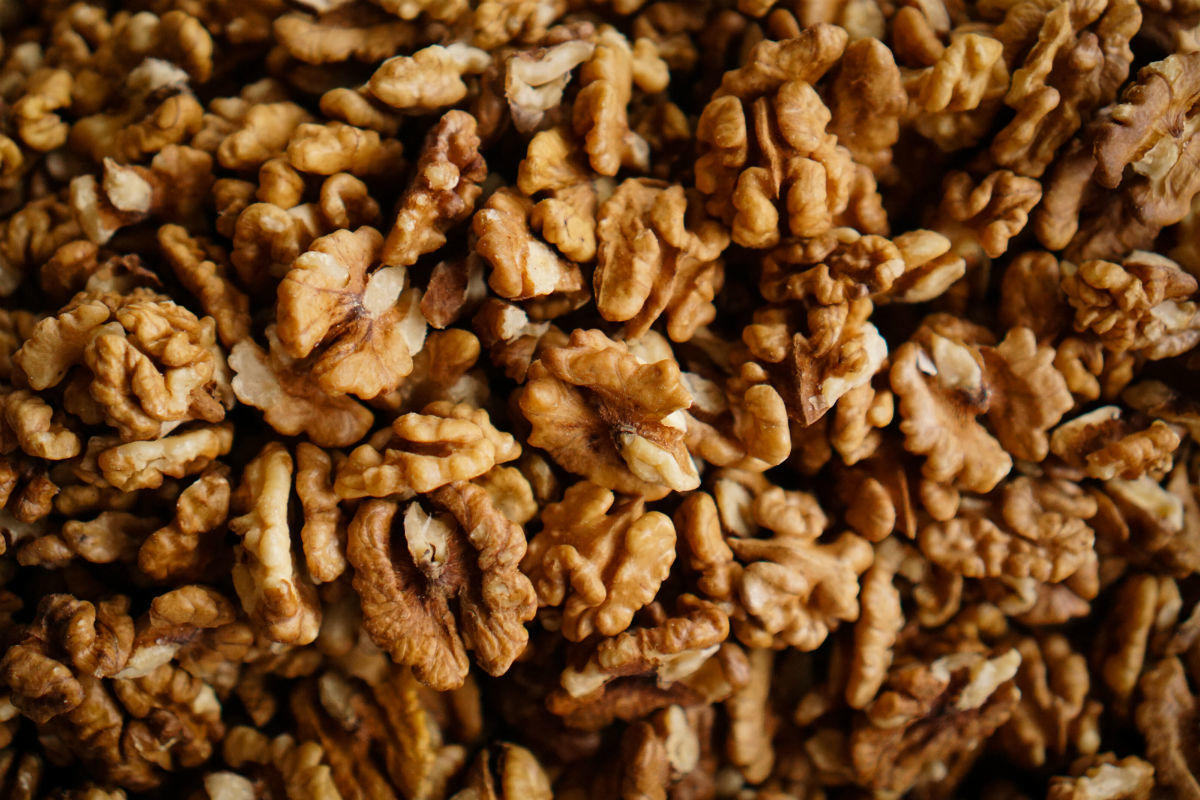Myth: Fats are bad
Fact: Fats are vital to maintain a healthy body and mind. They are an elixir for our bodies!
Nestled within the five basic food groups, this often misunderstood category plays a vital role in our overall health and nutrition. But where exactly do fats and oils fit in the food pyramid?
Join us as we delve into the science, history, and undeniable allure of this interesting food group. We'll debunk myths, share personal anecdotes, and uncover the secrets to making informed dietary choices.
Prepare to be intrigued by this often overlooked but undeniably essential part of our daily lives.


Understanding the Five Basic Food Groups
The food pyramid is commonly split into five primary food categories: cereals, fruits, vegetables, proteins, and dairy products. Every category has a crucial function in delivering necessary nutrients to the body, including carbohydrates, vitamins, minerals, and protein. Achieving a well-rounded diet involves incorporating suitable servings from each of these food groups.
The Role of Elixirs in the Food Pyramid
Fats and oils play a crucial role in the food pyramid, providing our bodies with essential nutrients and energy. While they have received a bad reputation in the past, it is important to understand that not all of them are created equal. In fact, some are actually beneficial for our overall health.
The Position of Fats and Oils in the Food Pyramid
In the conventional food pyramid, they are usually positioned at the pinnacle, suggesting that they should be consumed in moderation. Nevertheless, it is crucial to acknowledge that their placement in the pyramid has evolved over time. Some updated versions now recognise their significance in a well-rounded diet by placing them in a more prominent position.
Why Lipids are Essential for Our Body
Fats and oils serve as a concentrated source of energy, supplying us with nine calories per gram, in contrast to the four calories per gram provided by carbohydrates and proteins. This implies that even a small quantity of elixirs can offer us sustained energy throughout the day. Fats are a macronutrient that fuels our bodies, facilitates the absorption of fat-soluble vitamins (A, D, E, and K), and assists in hormone production. They also contribute to maintaining healthy skin, hair, and nails, while providing insulation for our bodies and safeguarding our vital organs.

Different Types of Fats and Their Impact on Health
Not all fats are created equal. The food pyramid distinguishes between different types, including saturated, unsaturated (monounsaturated and polyunsaturated), and trans fats. Saturated and trans fats are generally considered less healthy, as they can contribute to an increase in cholesterol levels and the risk of heart disease. Unsaturated fats, on the other hand, are often referred to as "healthy elixirs" and have been shown to have a positive impact on cardiovascular health.
Saturated Fats
Saturated fats have long been a subject of debate in the realm of nutrition and health. These lipids are commonly found in animal products, such as meat, dairy, and eggs, as well as certain plant-based oils like coconut and palm oil. The controversy surrounding them arises from their potential association with heart disease and other health concerns. Some experts argue that consuming excessive amounts of saturated fat can heighten the risk of cardiovascular problems, while others contend that it may not be as detrimental as previously believed.
Nevertheless, there is a general consensus that consuming them in moderation is crucial. It is important to maintain a well-balanced diet that incorporates variety, including unsaturated fats from sources like olive oil, avocados, and nuts. By doing so, you can ensure that you are obtaining essential nutrients while also safeguarding your heart health. Therefore, when preparing a delicious meal, remember to be mindful of the types and quantities you employ in order to create a wholesome and nourishing dish.
Find nutritionist courses here.

Unsaturated Fats
Unsaturated fats are a vital component of a balanced diet. In contrast to saturated, which are solid at room temperature and can increase the risk of heart disease, unsaturated fats are liquid at room temperature and have been proven to offer numerous health advantages. They can be found in foods such as avocados, nuts, seeds, and specific oils like olive oil and canola oil.
One of the primary benefits they carry is their ability to enhance heart health. Studies have demonstrated that substituting the saturated ones with unsaturated ones can help reduce levels of bad cholesterol and decrease the risk of heart disease. They can also enhance insulin sensitivity and lower blood sugar levels, which can be advantageous for individuals with diabetes.
In addition to their positive impact on heart health, unsaturated lipids also play a significant role in brain health. The brain consists of approximately 60% fat, with a substantial portion being unsaturated. Consuming foods rich in these elixirs can support brain function and enhance cognitive performance.
Trans Fats
Trans fatty acids are a type of unhealthy fat that is formed when liquid oils are made into solid triglycerides. They are commonly found in processed foods, such as fried foods, baked goods, and margarine. These harmful lipids have been linked to numerous health problems, including heart disease, obesity, and diabetes. In fact, the World Health Organization has called to completely remove them from the global food supply by 2023. To avoid consuming them altogether, it is important to read food labels carefully and choose products that are free from partially hydrogenated oils, the main source of trans fats. Opting for healthier cooking methods, such as baking or grilling instead of frying, can also help reduce trans fat intake.
How Much Fat Should We Consume Daily?
The recommended daily intake of this vital nutrient can vary depending on individual factors like age, gender, and activity level. As a general guideline, the food pyramid suggests that fats and oils should constitute 20-35% of our total daily caloric intake. However, it is crucial to focus on consuming the correct types in appropriate proportions.
To maintain a well-balanced diet, it is important to include a variety of foods that are abundant in healthy elixirs. These can include nuts, seeds, avocados, olive oil, fatty fish such as salmon and mackerel, and certain plant-based oils like avocado, flaxseed, and walnut oil.

Balancing Fats and Oils with Other Food Groups
Achieving a balanced diet requires not only understanding the role of fats and oils but also how they interact with the other food groups in the pyramid. When it comes to our diet, it's important to strike a balance between the different food groups. By incorporating appropriate portions alongside the recommended servings of grains, fruits, vegetables, proteins, and dairy, we can create a well-rounded and nourishing eating plan.
Tips for Incorporating Healthy Lipids into Your Diet
Here are some nifty and practical tips for incorporating them into your daily diet:
- Opt for the unsaturated ones, such as olive oil, avocado, nuts, and seeds, as your primary sources of dietary fat.
- Limit your intake of saturated and trans fats, which are often found in fried foods, baked goods, and processed snacks.
- Incorporate fatty fish, such as salmon, tuna, or mackerel, into your meals at least twice a week to obtain beneficial omega-3 fatty acids.
- Use healthy cooking methods, such as baking, grilling, or sautéing, to prepare your meals, rather than deep-frying.
- Read nutrition labels carefully to identify the types and amounts of fats in the foods you purchase.
- Experiment with different healthy oils, such as extra-virgin olive oil, avocado oil, or nut oils, to add flavor and variety to your dishes.
To learn more about incorporating healthy fats and oils into your diet and achieving a balanced food pyramid, schedule a consultation with a registered dietitian or one of our nutritionist experts on Superprof. They can provide personalised guidance and help you develop a sustainable eating plan that meets your individual health and wellness goals.

One key takeaway: fat is not the enemy; it's how we consume it that matters. To maintain optimal body functioning, incorporate small amounts of unsaturated fat into your daily diet. This, combined with moderate exercise throughout the week, promotes a strong heart and mind.
Differentiating between fats and knowing the appropriate quantities can make a significant impact, whether your goal is weight loss or overall well-being through mindful eating.
Read more about fruit and vegetables in the diet here.
Read more about dairy in the diet here.
Summarise with AI:















